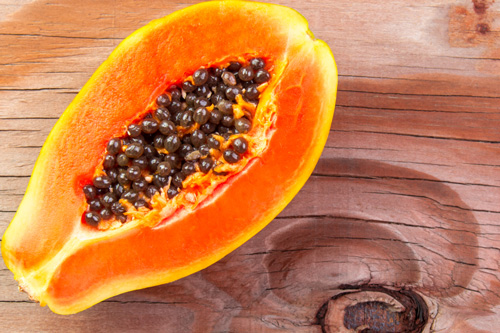 Increasing your intake of flavonoids can reduce your risk of erectile dysfunction, a new study reveals.
Increasing your intake of flavonoids can reduce your risk of erectile dysfunction, a new study reveals.
Up to half of all middle-aged men worldwide are affected by erectile dysfunction (ED), which severely impacts their quality of life. Previous research has shown that the causes of ED are similar to other conditions affecting blood vessels such as heart disease, high blood pressure, obesity and smoking. Therefore, changing lifestyle habits that reduce the risk of heart disease— such as eating a healthy diet and engaging in physical activity—may also reduce the risk of ED.
Very few studies have evaluated the effects that diet has on reducing risk of ED, therefore researchers decided to examine the relationship between consuming foods high in flavanoids such as fruits, vegetables, tea, herbs, and wine with ED.
Researchers from the Norwich Medical School, University of East Anglia and Harvard T.H. Chan School of Public Health evaluated 25,096 participants between the ages of 40 and 74 from the Health Professionals Follow-Up Study, a prospective cohort study over a 10 year period.
Participants completed mailed questionnaires which included updates on disease diagnoses at baseline and every two years thereafter. Individuals were asked to report whether they had any difficulties having or maintaining an erection during intercourse over the ten year time period. They were asked to specify on a time grid if any changes in functioning occurred.
Dietary intake was evaluated through food frequency questionnaires that were validated for flavonoid intake. Flavonoids include anthocyanins, flavones and flavanones.
“The top sources of anthocyanins, flavones and flavanones consumed in the U.S. are strawberries, blueberries, red wine, apples, pears and citrus products,” reported study author, Aedín Cassidy.
Dietary intake was completed every four years until 2010. Dietary intake ceased if anyone developed heart disease or had poor erectile functioning between 2000 and 2008.
Findings revealed that almost 36% of participants reported incidence of ED. Lower incidence was found among those with the healthiest habits including higher intake of flavonoids, increased physical activity, men who smoked less, and consumed less alcohol. Among the group of men consuming the highest amounts of flavonoids versus the lowest amounts, incidence of ED was about 10% lower.
Researchers found that increased fruit intake was associated with a 14% reduced risk of ED. Furthermore, consuming foods that were the top sources of flavanoids resulted in almost a 20% reduction in incidence of ED. These results were predominately a result of consuming either citrus fruits or at least three servings of blueberries per week, compared to none.
Findings also revealed that consuming high levels of flavonoids was associated with a stronger reduced risk of ED in men under the age of seventy compared to those over the age of 70. More so, the association was stronger among overweight men. For instance, men under the age of seventy, with a BMI between 25 and 30 had only a 15% reduced risk of ED compared to men under the age of 70 with a BMI greater than 30, whose risk was reduced by almost 40%.
“Men with erective dysfunction are likely to be highly motivated to make healthier lifestyle choices, such as exercising more and eating the right foods- which would greatly benefit their long-term cardiovascular health as well,” reported author, Eric B Rimm.
Further trials are warranted to investigate the protective benefits of incorporating more flavonoids into the diet in order to improve men’s overall health.
Sources for Today’s Article:
Cassidy, A., et al., “Dietary flavonoid intake and incidence of erectile dysfunction,” The American Journal of Clinical Nutrition 2016; doi: 10.3945/ajcn.115.122010.
Whiteman, H., “Men, take note: eat more fruits to reduce risk of erectile dysfunction,” Medical News Today web site; http://www.medicalnewstoday.com/articles/305046.php, last accessed January 15, 2016.
